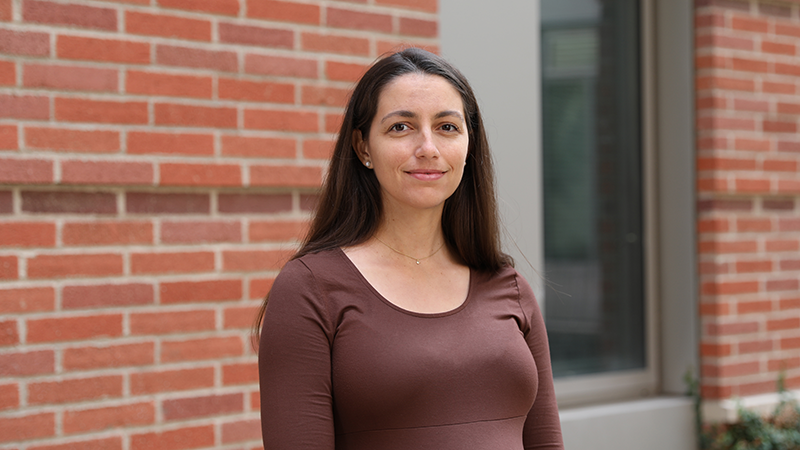UCLA Bioengineering Professor Receives NIH Grant to Improve Drug Efficacy

Jennifer Wilson, an assistant professor of bioengineering at the UCLA Samueli School of Engineering, has received a Maximizing Investigators’ Research Award (MIRA) from the National Institutes of Health, which is designed to provide support for highly talented and promising researchers as they pursue scientific breakthroughs.
The five-year, $1.6 million grant will help fund Wilson’s research to enhance the understanding of how drugs affect cellular proteins. The knowledge could help improve the design of medications with better efficacy, resulting in fewer and less severe side effects.
Proteins coordinate cellular responses to stimuli, such as medications, and they play a major role in a medication’s therapeutic effects — including unintended side effects. The rules that govern how the interactions work, especially in cases where medicines bind with proteins inside the cell, remain a gray area in science. Wilson’s research aims to map the complex interactions of drugs and proteins as well as their downstream effects.
Wilson joined the UCLA Samueli faculty in 2021 and directs the Lab for the Understanding of Network Effects. Her research focuses on engineering novel cellular circuit models by incorporating research-ready clinical data from the University of California system with data-driven models of protein interactions. The research has broad implications for improving safety and efficacy in medicine. According to the NIH, treating adverse reactions to drugs accounts for up to 16% of U.S. health care spending, and fewer than 10% of treatments under development will receive approvals from the Food and Drug Administration.
Prior to joining UCLA, Wilson was a postdoctoral fellow with the UC San Francisco-Stanford Center of Excellence in Regulatory Science and Innovation and a SPARK fellow at Stanford University. She received her Ph.D. from the Massachusetts Institute of Technology.
